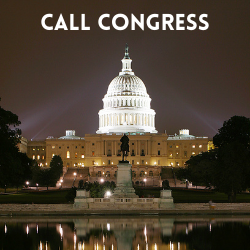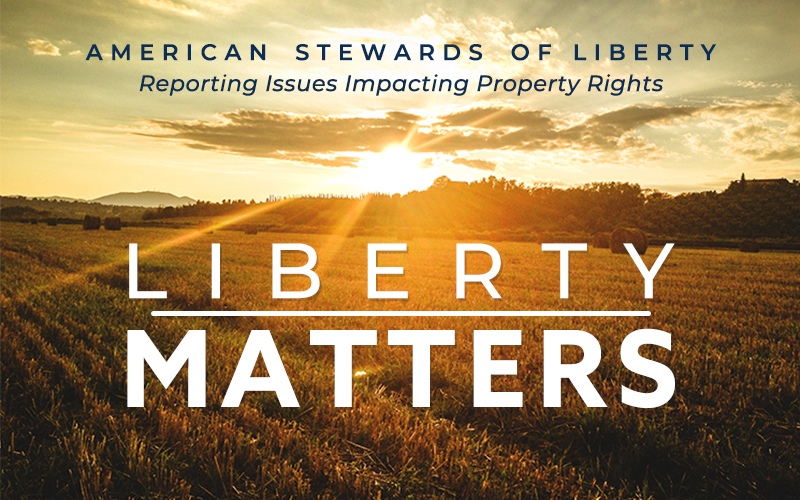In an interview given to Agri-Pulse Communications, Agriculture Secretary Vilsack said there is $27 billion allocated in the Build Back Better Act (BBB) for conservation funding that “could lead to 100 million acres of land being put under conservation in the U.S.”
At the International summit in Glasgow earlier this month, he shared with the community how the BBB bill would help the U.S. do its part to reduce agriculture emissions stating that “investments in climate-smart agriculture could alone reach roughly 100 million crop acres each year, representing activity on as many as 200,000 farms in America,” Vilsack said.
That gives the Agriculture Department a considerable sum of tax-payer dollars to directly compete with the working landowner, place federal strings on the enrolled land, and move closer to their 30 x 30 goal.
Already, this year, some landowners have lost the opportunity to expand their operations through leasing or purchasing additional properties. The Agriculture Department has increased the dollars they are paying per acre to landowners when they enroll in the federal programs, directly competing with the working landowner who wants to lease the land to raise livestock, hay or crops.
Young farmers and ranchers are finding it difficult to get into the business, that is, unless they do so through a federal program where the government can keep a hand in their business. The new funding that would be issued under the Build Back Better Act, would give the Department more monies to make progress towards full control of America’s agriculture industry.
As we have noted before, there are existing laws in place that authorize the Biden Administration to regulate private property more aggressively if they choose to do so in order to reach their environmental goal of permanently protecting at least 30 percent of American’s lands and oceans by 2030 – otherwise known as 30 x 30. One such provision is in the Endangered Species Act, (16 U.S.C.A. 1536(a)2)) which requires all federal agencies to consult with the U.S. Fish and Wildlife Service (USFWS) when critical habitat may be impacted. Normally, this provision does not apply to private lands. The exception is when there is any federal “funding, programs, or approvals,” linked to the lands, such as through the Conservation Reserve Program (CRP).
While the Build Back Better Act provides more federal funding for the conservation programs, section 70603 of the Act also allocates an additional $40 million to the USFWS for interagency consultation on endangered and threatened species, which would apply to the agriculture agencies implementing the conservation programs. Here is the specific text in the bill:
“In addition to amounts otherwise available, there is appropriated to the United States Fish and Wildlife Service for fiscal year 2022, out of any money in the Treasury not otherwise appropriated, $40,000,000, to remain available until September 30, 2031, except that no amounts may be expended after September 30, 2031, for carrying out consultations with Federal agencies that undertake agency actions affecting endangered species and threatened species under section 7 of the Endangered Species Act of 1973 (16 U.S.C. 1536).”
While the Agriculture Department is enticing landowners to enroll in the federal conservation programs, the Interior Department is ramping up a key enforcement tool that can restrict land use under these same programs.
Two other allocations made in this bill that advance the President’s 30 x 30 goal are $10 million for wildlife corridors and $100 million for grassland restoration.
Tuesday of this week, The American Farm Bureau Federation issued a letter opposing the bill.
“While certain funding increases or newly created programs may, by themselves, be commendable, the totality of the increased federal spending in this bill coupled with the enormously burdensome tax increases leveled on businesses and individuals to pay for it will stifle economic growth and destroy jobs. Ultimately, the result could be the consolidation or sale of family farms and ranches.”
Secretary of the Treasury Janet Yellen is sounding an alarm, pushing Congress to “raise or suspend” the debt ceiling of $28.88 trillion by December 15, in order to continue to fund the federal government. Yet, the Democrat Congress is attempting to spend another $2.1 trillion before the weeks end. Not only is this bill fiscally irresponsible, but it contains many troubling provisions that will further erode American’s ability to provide the food, fiber, energy, and minerals our nation depends on to ensure economic stability and our national defense.
Your Representative and Senators need to hold the line on this one, regardless of party affiliation.





